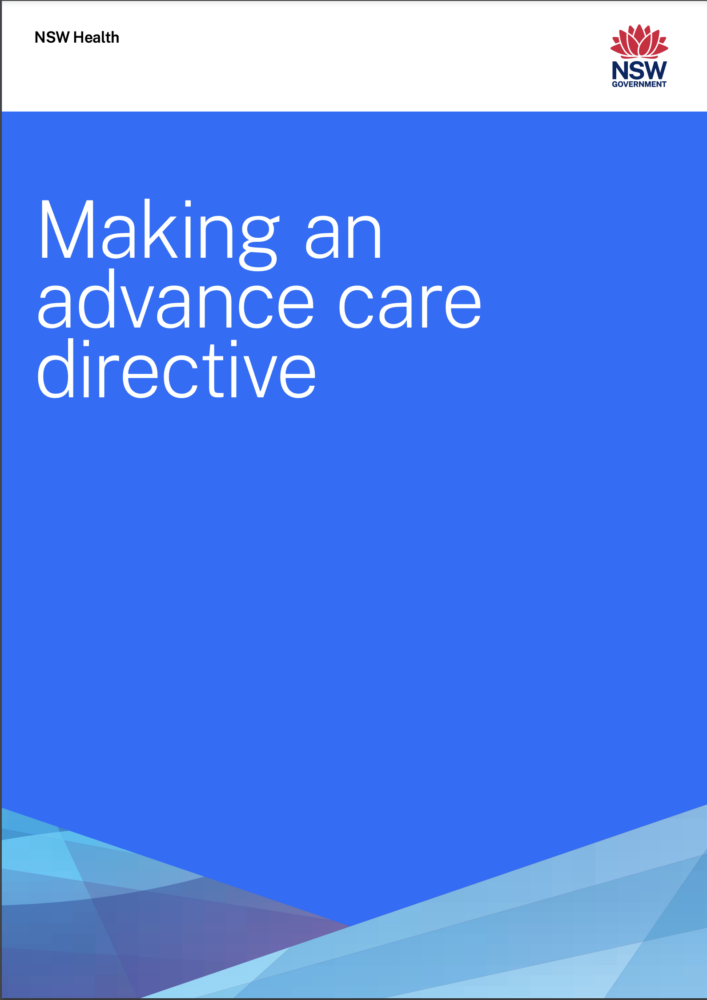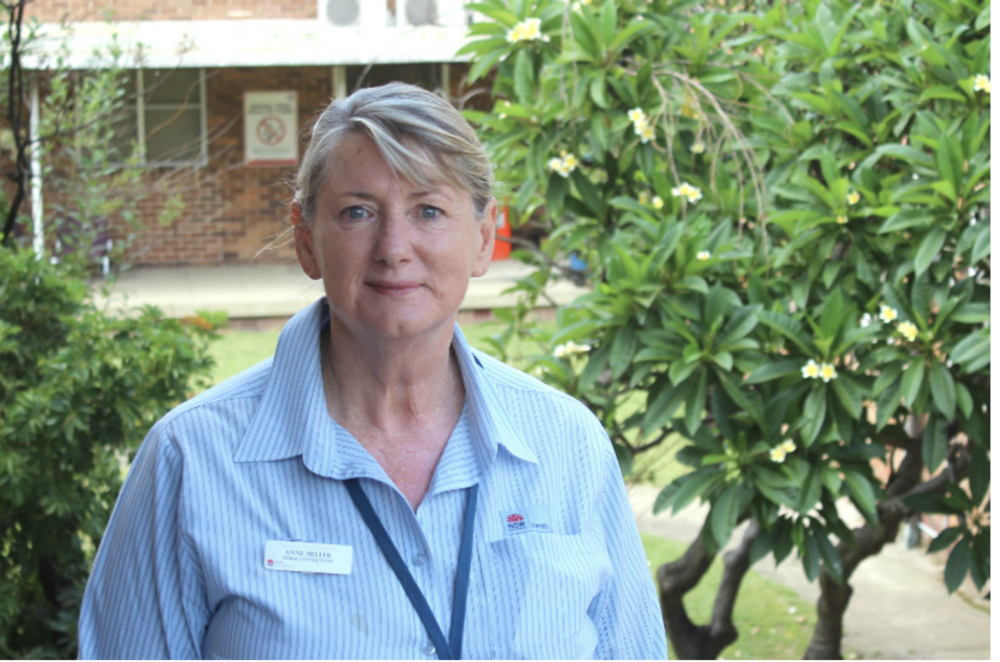
Here is a PDF of the NSW Government’s latest Making an advance are directive booklet. A couple of people at recent Understand Death Better talks in Sydney have asked for the NSW form. So here it is.
Making an Advance Care Directive (pdf)
It’s a good document because it’s written in easy to understand language and it’s quite short which is best, because if they’ve got too much information in them, they can be difficult to work with.
To be legal in NSW, an advance care directive can be written on the back of an envelope. It doesn’t need to be signed by anyone else, rubber stamped, reviewed by a lawyer or copied in triplicate. It just has to be.
That said, if the staff in the hospital you’ve been admitted to see a form they recognise, it’s easier for them to work with it. This is important for you if it’s a high pressure situation, say you’ve been brought into hospital unconscious and the staff are quickly trying to work out how they should manage you.
Just say you look elderly, about 85-years-old and you’re getting sicker, say your blood pressure is dropping and the staff are starting to get worried you could soon have a cardiac arrest.
Do you want cardiopulmonary resuscitation or not?
Despite how you look, you might be a 95-year-old who’s never had a day’s illness in your life (they do exist) and you’re really looking forward to your great grandson’s wedding next month. Or you could be a 75-year-old who’s got early dementia, diabetes, arthritis so bad you can’t move very far independently and has repeatedly told anyone who’ll listen that you’ve had enough.
As the staff gather information, they’ll be looking keenly to see what your preferences about treatment are. So if they’ve got this NSW form, they’ll go to (Section 2) Personal Values about Dying.
The current form has seven questions about values under this heading. But a word of common sense here. Filling in a form about your values is vastly different to filling in a form about what you want for dinner tonight.
So it’s generally understood that you will want to think about values around dying in a more reflective way. In fact, the language around these documents talks about the directive and the plan or planning. The directive is the piece of paper in front of you but the planning is a process, sometimes a long one. It’s about really working through what you want. It’s about talking to people, such as your family, or if you don’t have any – very common – those who you trust to help you work through your thinking on all of this.
South East Sydney Local Health District works with a clinical nurse consultant in advance care planning, Anne Meller, and she is based at Prince of Wales Hospital. She can offer great insights into advance care directives and the planning that’s needed for them. I mention this because it’s from her local health district that a few of the questions about this have come up recently. There are other such dedicated staff in other places. We’d love to hear from you if you are one.
And there’s something else that’s important.
Where should I keep my advance care directive?
Here’s what the NSW document says.
“You should keep your Advance Care Directive in a place that is easy for you or someone else to find it. It is a good idea to keep a copy with you, or to keep a card in your wallet that lets people know that you have an Advance Care Directive and where it can be found.
“It is a good idea to leave copy with your Person Responsible, family and/or carer, doctor and /or healthcare facility.
“Make sure you know where all the copies are. If you change your Advance Care Directive, you will need to replace all the other copies.”
And we look forward to the day when it will be completely standard for hospital staff to zap on a link on your phone and can go straight to your advance care directive, uploaded to a safe place.
Clinical Nurse Consultant, Advance Care Planning, Prince Of Wales Hospital.

Here is what Anne Meller has to say on the SESLHD website.
https://www.seslhd.health.nsw.gov.au/anne-meller
“Advance care planning is the process of helping people have a say in the types of care and treatment they would want towards the end of their lives.” says Anne Meller.
“I see patients at home or in residential care who want to put things in place. So many people get to the end of their lives and they haven’t had any discussion with their family about what’s important to them. I enjoy working with families of someone who hasn’t done any decision making and who need a little bit of support.”
“I recommend start talking to your family and if you haven’t got family, those close to you, or your GP. Think about what’s important to you in your life and how you live your life. Think about appointing someone to make your health decisions, it’s called an Enduring Guardian in NSW.”
More resources.
One of our sponsors ExSitu, has developed a tool that helps people formulate their thinking about their advance care directive. Rebecca Glover of ExSitu describes the cards as a little bit like Solitaire cards.
See their article here.https://good-grief.com.au/sponsored-article-how-can-exsitu-help-with-my-advance-care-planning/
- End of Life Law in Australia End of Life Law in Australia
- The ELDAC Legal toolkit
- Advance Care Planning Australia Advance Care Planning Australia.
Also, https://good-grief.com.au/sponsored-article-how-can-exsitu-help-with-my-advance-care-planning/
© Good Grief! 2023.
